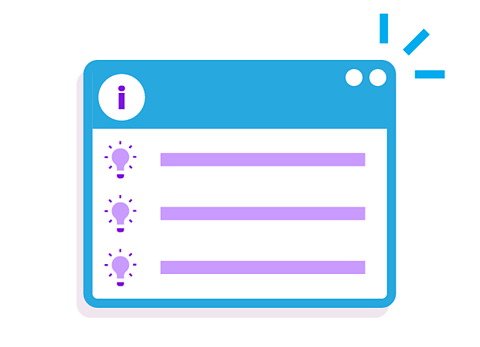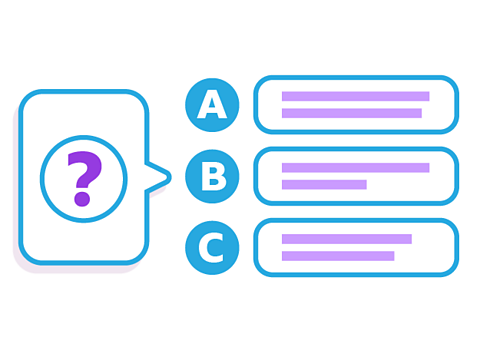Key points about reflexive pronouns in French

Reflexive pronouns are used with reflexive verbVerbs where the action is done to the same person who is doing it, eg se laver (to wash oneself)., which have se in the infinitive.
The French reflexive pronouns are me (myself), te (yourself) and se (oneself/himself/herself/itself).
The position of reflexive pronouns depends on the tense the sentence is in and whether it is a positive or negative sentence.
Higher Tier â the plural reflexive pronouns are nous (ourselves), vous (yourself/yourselves) and se (themselves).
Higher Tier - Reflexive verbs with reciprocal meanings are verbs where the reflexive pronoun can be translated as âeach otherâ, such as se regarder (to look at each other).
What are reflexive pronouns?
Reflexive pronouns are used with reflexive verbs, which have the reflexive pronoun se in the infinitive.
Here are some useful reflexive verbs that are important to know for Foundation level:
| Sorry, something went wrongCheck your connection, refresh the page and try again. | to be called |
| Sorry, something went wrongCheck your connection, refresh the page and try again. | to get changed |
| Sorry, something went wrongCheck your connection, refresh the page and try again. | to get on with |
| Sorry, something went wrongCheck your connection, refresh the page and try again. | to be interested in |
| Sorry, something went wrongCheck your connection, refresh the page and try again. | to get up |
| Sorry, something went wrongCheck your connection, refresh the page and try again. | to get married |
| Sorry, something went wrongCheck your connection, refresh the page and try again. | to happen, to take place |
| Sorry, something went wrongCheck your connection, refresh the page and try again. | to be situated |
What are the French reflexive pronouns?
The reflexive pronouns in French are shown below. Before a vowel or âhâ, me becomes mâ, and so on.
| Sorry, something went wrongCheck your connection, refresh the page and try again./ ³Ÿâ (before a vowel or âhâ) | myself |
| Sorry, something went wrongCheck your connection, refresh the page and try again./ ³Ùâ (before a vowel or âhâ) | yourself |
| Sorry, something went wrongCheck your connection, refresh the page and try again./ ²õâ (before a vowel or âhâ) | oneself/himself/herself/itself |
Sometimes, the reflexive pronoun can be translated as âmyselfâ, etc, but often these are not used in English.
For example:
Je me lÚve. â I get (myself) up.
Quâest-ce qui se passe ? â What is happening?
Position of reflexive pronouns in different tenses
The position of the reflexive pronoun in a sentence depends on which tense the sentence is in.
Present and imperfect tenses
When using the present and imperfect tenses, the reflexive pronoun comes between the subject and the verb:
For example:
Tu te lÚves. â You get up.
Il ²õâintéressait aux trains. â He used to be interested in trains.
Immediate future ('aller' + infinitive) and modal verbs
In the immediate future (aller + infinitive) or after a modal verb + infinitive, the reflexive pronoun goes just before the infinitive.
For example:
- Je vais me lever. â I am going to get up.
Perfect tense
In the perfect tense, the reflexive pronoun goes before the auxiliary verb, which is always ê³Ù°ù±ð (to be) with reflexive verbs.
For example:
Je me suis levé(e). â I got up.
Quâest-ce qui ²õâest passé ? â What happened?

Did you know?
You always have to âagreeâ the past participle when the auxiliary verb is ê³Ù°ù±ð (to be).
For example, to say âshe got upâ or 'she got changed', etc, you need an extra âeâ on the end of the past participle, to agree the fact that the subject of the sentence is female.
- Elle ²õâest levée. â She got up.
- La fille s'est changée â The girl got changed.
Position of reflexive pronouns in negative sentences
In negative sentences, the reflexive pronoun usually goes between the ne and the conjugated verb. In the immediate future and with modal verbs, it goes before the infinitive.
Negative sentences in the present and imperfect tenses
When using a negative sentence in the present and imperfect tenses, the reflexive pronoun goes between the ne and the conjugated verb.
For example:
- Tu ne te lÚves pas ? â Arenât you getting up?
The present and imperfect tenses - Mini quiz

Put this sentence in the correct order:
Il / ne / pas / aux trains / ²õâintéressait (He didnât use to be interested in trains.)
Il ne ²õâintéressait pas aux trains.
Negative sentences in the immediate future and with modal verbs
When using a negative sentence in the immediate future (aller + infinitive) or with modal verbs + infinitive, the reflexive pronoun goes just before the infinitive.
For example:
- Je ne vais pas me lever. â I am not going to get up.
- Elle ne veut pas se changer. â She doesn't want to get changed.
Negative sentences in the perfect tense
When using the perfect tense, the reflexive pronoun goes after the ne and before the auxiliary verb ê³Ù°ù±ð.
For example:
- Je ne me suis pas levé(e). â I didnât get up.
- Elle ne s'est pas mariée. â She didn't get married.
Reflexive pronouns in French quiz
Practise what youâve learned about reflexive pronouns with this quiz.
Higher Tier â Plural reflexive pronouns
The plural reflexive pronouns are as follows:
| Sorry, something went wrongCheck your connection, refresh the page and try again. | ourselves |
| Sorry, something went wrongCheck your connection, refresh the page and try again. | yourself/yourselves |
| Sorry, something went wrongCheck your connection, refresh the page and try again./ s' (before a vowel or âhâ) | themselves |

Remember:
Vous can mean âyouâ in a formal situation with one person or for a group of people (formal and informal).
Useful reflexive verbs
Here are some useful reflexive verbs that are important to know at Higher Tier:
| Sorry, something went wrongCheck your connection, refresh the page and try again. | to apologise |
| Sorry, something went wrongCheck your connection, refresh the page and try again. | to integrate, fit in |
| Sorry, something went wrongCheck your connection, refresh the page and try again. | to sit down |
| Sorry, something went wrongCheck your connection, refresh the page and try again. | to worry |
| Sorry, something went wrongCheck your connection, refresh the page and try again. | to complain |
| Sorry, something went wrongCheck your connection, refresh the page and try again. | to hurt oneself |
| Sorry, something went wrongCheck your connection, refresh the page and try again. | to introduce oneself |
| Sorry, something went wrongCheck your connection, refresh the page and try again. | to argue |
Position of plural reflexive pronouns
The rules for the position of plural reflexive pronouns are the same as for the other reflexive pronouns.
- In the present, imperfect or future tenses, the reflexive pronoun goes between the subject and the verb.
Nous nous excusons. â We apologise.
- In the immediate future (aller + infinitive) or when using modal verbs with infinitives, the reflexive pronoun goes before the infinitive.
Vous allez bien vous intégrer ici. â Youâre going to fit in well here.
- When using the perfect tense, the reflexive pronouns go before the auxiliary verb ê³Ù°ù±ð (to be).
Ils se sont inquiétés. â They worried.
Plural reflexive pronouns - Mini quiz

Translate this sentence into French:
We are going to complain.
Nous allons nous plaindre.
Higher Tier - Reflexive verbs with reciprocal meanings
Reflexive verbs with reciprocal meanings are verbs where the reflexive pronoun can be translated as âeach otherâ.
For example:
| Sorry, something went wrongCheck your connection, refresh the page and try again. | to write to each other |
| Sorry, something went wrongCheck your connection, refresh the page and try again. | to talk to each other |
| Sorry, something went wrongCheck your connection, refresh the page and try again. | to look at each other |
| Sorry, something went wrongCheck your connection, refresh the page and try again. | to give each other (eg presents) |
They are only used with plural subject pronouns: on/nous (we), vous (you) and ils/elles (they).
Reflexive verbs with reciprocal meanings in different tenses
The sentence structure of reciprocal verbs depends on the tense the sentence is in and whether it is a positive or negative sentence. The rules are the same as for all other reflexive verbs.
For example:
Ils ²õâécrivent tous les jours. â They write to each other every day.
Nous allons nous parler demain. / On va se parler demain. â Weâre going to speak to each other tomorrow.
Vous voulez vous donner des cadeaux ? â Do you want to give each other presents?
Elles se sont regardées dans les yeux. â They looked into each otherâs eyes.
Nous aimons nous parler tous les jours. â We like speaking to each other every day.
Higher Tier - Quiz - Reflexive pronouns in French
Practise what youâve learned about reflexive pronouns with this quiz for Higher Tier.
Now youâve learned about reflexive pronouns, why not explore relative pronouns?
More on Pronouns
Find out more by working through a topic
- count7 of 7

- count1 of 7

- count2 of 7
